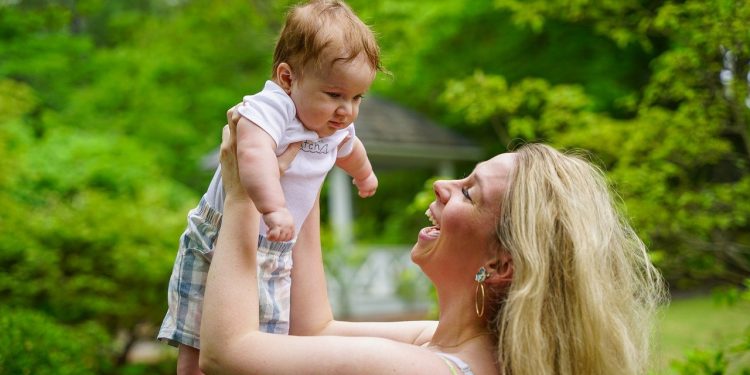Traveling with a newborn can be an overwhelming prospect for many parents. Between feeding schedules, diaper changes, and ensuring your little one stays comfortable, the thought of venturing out can seem daunting. However, with careful planning and the right mindset, traveling with your newborn can be an incredibly rewarding experience for the whole family. Whether you are planning a short trip to visit family or embarking on your first family vacation, this guide will help you prepare for a smooth journey with your new baby. Here are essential tips and a packing checklist to make your travel as stress-free as possible.
1. Plan Ahead and Be Flexible
The key to a successful trip with a newborn is planning ahead while maintaining a sense of flexibility. Babies are unpredictable, and things might not always go according to plan. By staying flexible, you can reduce stress and make the most of your trip. Before you travel, think through your baby’s needs and plan accordingly. Look into family-friendly accommodations, and try to choose flights or travel times that align with your baby’s nap schedule to keep them as comfortable as possible.
It’s also helpful to make a checklist of everything you need to pack and all the steps you need to take before traveling. Consider booking accommodations that offer amenities like cribs or highchairs, and be prepared to make adjustments to your plans if needed. While it’s great to have a travel itinerary, leave room for changes that accommodate your baby’s needs.
2. Choose the Right Mode of Transportation
When traveling with a newborn, choosing the right mode of transportation can make a big difference in your overall experience. Whether you’re traveling by car, plane, or train, each mode comes with its own set of challenges and considerations.
For car travel, make sure your car seat is properly installed, and plan for frequent stops to feed and change your baby. Long drives can be tough for little ones, so try to break up the journey with rest stops where you can stretch your legs and take care of your baby’s needs.
If you’re flying, consider booking a direct flight to minimize disruptions and travel time. Arrive early at the airport to allow for extra time to go through security and board the plane. If possible, try to book a window seat to give yourself some privacy while feeding and to create a cozy nook for your baby.
3. Pack Smart: Essentials for Your Baby
Packing efficiently is one of the most important aspects of traveling with a newborn. Here is a list of essential items to pack for your trip:
- Diapers and Wipes: Pack enough diapers to last the journey, plus extras in case of unexpected delays. Don’t forget baby wipes, as they’re useful for diaper changes, cleaning hands, and wiping down surfaces.
- Changing Pad: A portable changing pad is a must-have for diaper changes on the go. It helps keep your baby comfortable and ensures a clean surface wherever you are.
- Feeding Supplies: If you’re breastfeeding, bring a cover if you prefer privacy. If you’re bottle-feeding, pack enough bottles, formula, and a portable bottle warmer if needed. Don’t forget burp cloths to handle any spills.
- Clothing: Bring extra clothing for your baby, including layers in case the weather changes. Babies can be messy, so it’s always a good idea to pack more outfits than you think you’ll need.
- Blanket and Swaddle: A lightweight blanket or swaddle is versatile and can be used for warmth, as a nursing cover, or as a makeshift sunshade.
- Baby Carrier or Sling: A baby carrier or sling is incredibly useful for keeping your baby close while giving you the freedom to move around. It’s especially helpful when navigating crowded airports or train stations.
- Pacifiers and Comfort Items: If your baby uses a pacifier, bring a few extras in case one gets lost. Comfort items, such as a favorite stuffed animal or a soft toy, can help soothe your baby during the journey.
- First Aid and Toiletries: Pack any medications your baby may need, along with a small first aid kit, baby-safe sunscreen, diaper cream, and hand sanitizer.
4. Keep Your Baby Comfortable
Your baby’s comfort is key to a successful trip. Dress your newborn in comfortable, weather-appropriate clothing, and make sure they’re neither too hot nor too cold during the journey. Babies are sensitive to changes in temperature, so bring extra layers that you can add or remove as needed.
When flying, be aware that changes in cabin pressure can be uncomfortable for babies, especially during takeoff and landing. To help relieve the pressure, try breastfeeding or offering a bottle or pacifier during these times. The sucking motion can help equalize the pressure in their ears, making them more comfortable.
5. Maintain Your Baby’s Routine as Much as Possible
Babies thrive on routine, and maintaining some sense of normalcy during your trip can help reduce stress for both you and your baby. Try to stick to your baby’s usual feeding and sleep schedule as closely as possible, even if you’re in a new environment. Bring familiar items from home, such as their favorite blanket or sleep sack, to create a sense of comfort and familiarity.
If you’re traveling across time zones, try to gradually adjust your baby’s schedule leading up to the trip. Once you arrive, expose your baby to natural light during the day to help them adapt to the new time zone more easily. Be patient with your baby (and yourself) as you adjust to a new routine, as it may take a few days for everyone to settle in.
6. Be Prepared for the Unexpected
Traveling with a newborn often comes with surprises, and being prepared for the unexpected can help you navigate any challenges that arise. Pack extra diapers, clothing, and feeding supplies in case of delays or unexpected detours. A small emergency kit with essentials such as baby pain reliever, a thermometer, and hand sanitizer can be incredibly helpful in case of minor illnesses or discomfort.
It’s also a good idea to have a backup plan in case your original plans don’t work out. For example, research alternative routes, nearby stores for baby supplies, and local medical facilities before you travel. While you can’t prepare for everything, having a plan in place can help you feel more in control and reduce stress during your journey.
7. Take Care of Yourself Too
Traveling with a newborn can be exhausting, so it’s important to take care of yourself as well. Remember to stay hydrated, eat regular meals, and rest whenever possible. Accept help from your partner or other family members if you’re traveling together, and take turns caring for the baby so that you can both get some rest.
It’s also important to keep a positive mindset and stay patient. Babies pick up on their parents’ emotions, so staying calm and relaxed can help your baby feel more at ease. Traveling with a newborn is an adventure, and while it may come with challenges, it’s also an opportunity to make beautiful memories as a family.












